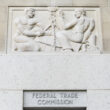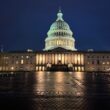The approaching deadline for businesses to file their beneficial ownership information with the Financial Crimes Enforcement Network is once again on hold.
Three days after the U.S. Court of Appeals for the Fifth Circuit Dec. 23 overturned the nationwide preliminary injunction on the Corporate Transparency Act, the court’s merit panel reinstated the injunction Dec. 26. The case, Texas Top Cop Shop vs. Merrick Garland, will now go to the merits panel for an expedited oral argument.
“The merits panel now has the appeal, which remains expedited, and a
briefing schedule will issue forthwith. However, in order to preserve the
constitutional status quo while the merits panel considers the parties’
weighty substantive arguments, that part of the motions-panel order granting
the Government’s motion to stay the district court’s preliminary injunction
enjoining enforcement of the CTA and the Reporting Rule is VACATED,” the court wrote.
After the court’s decision Dec. 26, FinCEN posted on its website that businesses are not currently required to file, but can submit information voluntarily.
“In light of a recent federal court order, reporting companies are not currently required to file beneficial ownership information with FinCEN and are not subject to liability if they fail to do so while the order remains in force. However, reporting companies may continue to voluntarily submit beneficial ownership information reports,” the FinCEN posted.
FinCEN posted on Dec. 23 an extension to the Jan. 1 deadline. It stated businesses created prior to Jan. 1, 2024, will have an extension to file their initial information until Jan. 13, 2025. The deadline was Jan. 1, 2025. Extensions of the deadline to Jan. 13 were also given to businesses created or registered on or after Sept. 4, 2024, or had qualified for disaster relief. Businesses created between Dec. 3 and Dec. 23, 2024, are being given an extra 21 days to file.
Effective Jan. 1, 2024, the CTA requires many companies, including many NIADA dealer members, to report information about their beneficial owners to the U.S. Department of Treasury’s Financial Crimes Enforcement Network (“FinCEN”). The information was due by Jan. 1, 2025 for entities in existence as of Dec. 31, 2023, and within 90 days of formation for entities that were formed in 2024.
Corporations, limited liability companies and limited partnerships are required to file with limited exceptions.
Required information to be reported in the initial BOI report about the reporting company includes: (a) its full legal name; (b) any trade names, “doing business as”, or “trading as” names; (c) the current street address of its principal place of business if that address is in the U.S., or, for reporting companies whose principal place of business is outside the U.S., the current address from which the company conducts business in the U.S.; (d) its jurisdiction of formation or registration; and (e) its Taxpayer Identification Number.
Required information to be reported in the initial report about each beneficial owner include: (a) the individual’s name; (b) date of birth; (c) residential address; and (d) an identifying number from an acceptable identification document such as a passport or U.S. driver’s license, and the name of the issuing state or jurisdiction of identification document.
The penalties for filing false beneficial ownership information or for failure to report or update beneficial ownership information are: (i) civil penalties of $500 for each day that the violation continues or has not been remedied; and (ii) a criminal fine of up to $10,000, imprisonment for up to two years, or both.
In issuing the stay of the preliminary injunction in the case Texas Top Cop Shop vs. Merrick Garland, the Court of Appeals judges wrote: “When balancing this harm against the public’s urgent interest in combatting financial crime and protecting our country’s national security, equity favors a stay. As the government explains, and the district court recognizes, a last-minute nationwide preliminary injunction would undermine our ability to push other countries to reform their anti-money laundering and counterterrorism regimes and to address the most fundamental gap in our own regime. Accordingly, the government has demonstrated that a stay is warranted.”
The Court of Appeals judges noted FinCEN’s estimate that companies would spend approximately 90 minutes to complete and file the report. The financial cost is estimated at $85 of labor time.
A federal judge in Texas in the first week of December had granted a preliminary injunction, putting the enforcement of the Corporate Transparency Act on hold just weeks before its filing deadline.
In the case Texas Top Cop Shop vs. Merrick Garland, Judge Amos Mazzant of the U.S. District Court of Eastern Texas stated the act was “likely unconstitutional as outside of Congress’ power,” and granted the request of an injunction to be applied nationwide.
“[The CTA] represents Congress’s attempt to combat bad actors’ ability to cloak their criminal activities in a veil of corporate anonymity,” Mazzant wrote. “At its most rudimentary level, the CTA regulates companies that are registered to do business under a state’s laws and requires those companies to report their ownership, including detailed, personal information about their owners, to the federal government on pain of severe penalties. Though seemingly benign, this federal mandate marks a drastic two-fold departure from history. First, it represents a Federal attempt to monitor companies created under state law—a matter our federalist system has left almost exclusively to the several states. Second, the CTA ends a feature of corporate formation as designed by various states—anonymity. For good reason, plaintiffs fear this flanking, quasiOrwellian statute and its implications on our dual system of government. As a result, plaintiffs contend that the CTA violates the promises our Constitution makes to the People and the States. Despite attempting to reconcile the CTA with the Constitution at every turn, the government is unable to provide the court with any tenable theory that the CTA falls within Congress’s power. And even in the face of the deference the court must give Congress, the CTA appears likely unconstitutional. Accordingly, the CTA and its implementing regulations must be enjoined.”










